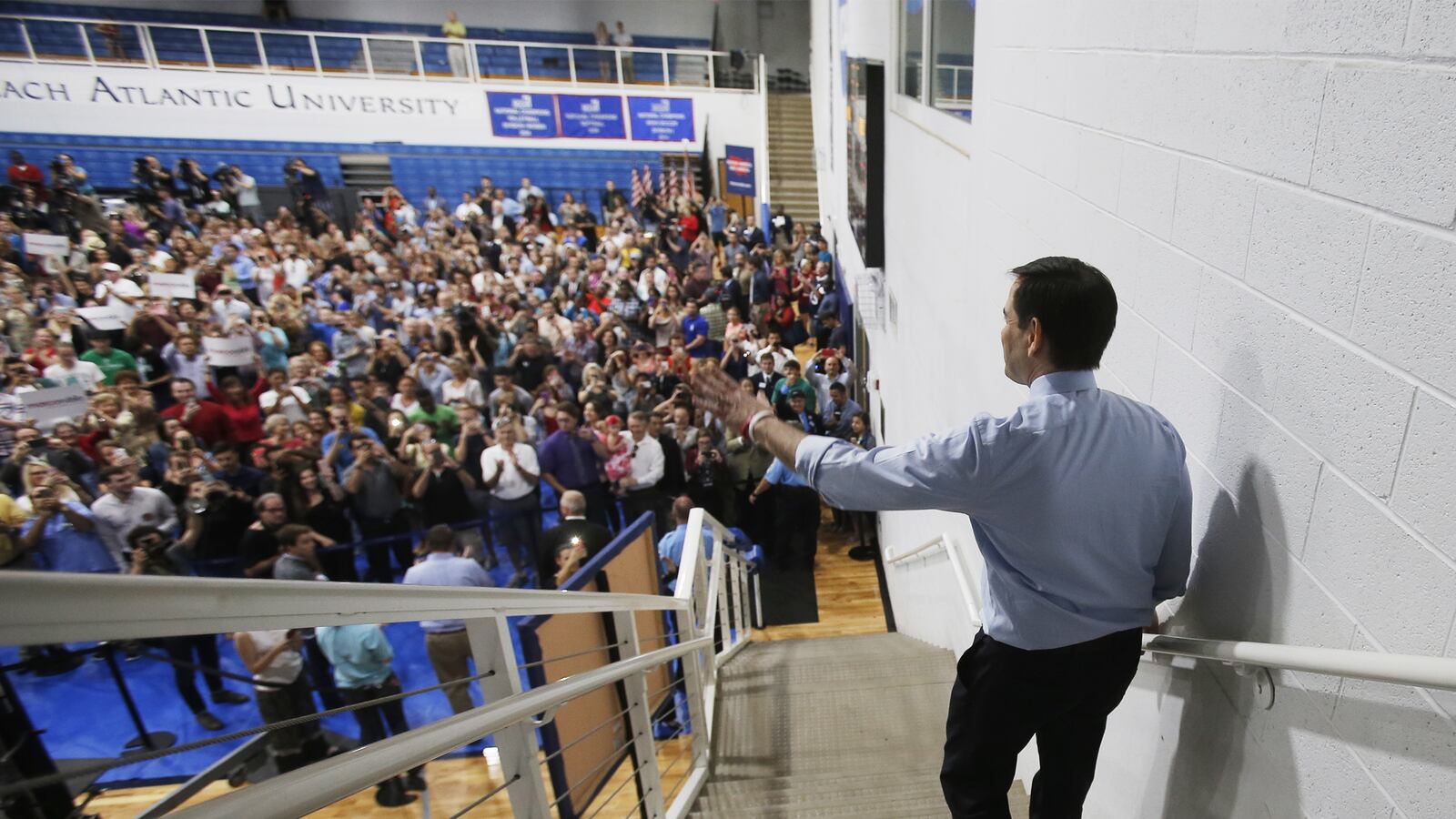If you can’t win your home state, can you win the presidency?
Ohio Gov. John Kasich says he’ll get out of the race if he doesn’t beat Donald Trump in the primary, and Marco Rubio’s political career is over, at least for now, if he fails to win Florida. You have to go back to 1980 and 1992 to find an example remotely comparable to where a sitting senator and incumbent governor could be driven out of the presidential primaries by the voters that know them best and who propelled their careers.
Home state candidates almost always win their states if they don’t bow out first: That’s why they’re called favorite sons. Sen. Lindsay Graham dropped out of the presidential race before he could be embarrassed at home in South Carolina, where he was polling in single digits. The home advantage is seen as so strong that Bill Clinton in ’92 didn’t contest Iowa because the state’s long-serving U.S. senator, Tom Harkin, was among the candidates for the Democratic nomination.
A lot of things have happened in this cycle that we haven’t seen before, and two finalists facing embarrassment, even humiliation because they may not win their state, is on the list.
“Unusual but not unprecedented,” says Bill Galston with the Brookings Institution, who points out that Clinton beat then-former Gov. Jerry Brown in the ’92 California primary by seven points, ending Brown’s presidential hopes on the last day of the primary season. Brown was a serious challenger, having won five primaries, including Colorado and Nevada.
Technically Brown lost his home state and that ended his candidacy, but Clinton had basically wrapped up the nomination once Brown said he’d consider making the Rev. Jesse Jackson his running mate. Jackson had made remarks in 1984 that he thought were off the record and when they got out ("Hymietown") were offensive to the Jewish community and to others.
“Brown was a dead man walking after that,” recalls Matt Bennett with Third Way. “You have to win your home state, or you really are a loser.”
The 1988 Democratic primary is a who’s who of favorite sons: Al Gore won Tennessee; Paul Simon won Illinois; Dick Gephardt won Missouri, Michael Dukakis won Massachusetts. These candidates didn’t compete heavily on each other’s turf the way Trump has contested Ohio and Florida, or the way Ted Cruz is hammering away at Rubio in Florida.
In 1992, Bob Kerrey was out of the race by Nebraska. Sen. Paul Tsongas of Massachusetts won neighboring New Hampshire (Clinton came in second and proclaimed himself “the comeback kid"), and Harkin won Iowa. In 2000, Bill Bradley withdrew before New Jersey. In 2004, John Kerry won Massachusetts; John Edwards was out before North Carolina, and Howard Dean won Vermont. In 2008, Barack Obama won Illinois.
And while we’re tallying home-state candidacies, it should be pointed out that Jesse Jackson lost his home state of Illinois in the primaries in 1984 and 1988, but he had so many challenges as an outsider and as an African American at that time that favorite-son status was never a consideration.
On the Republican side, Ronald Reagan beat George H.W. Bush in Texas in the 1980 primary, and Texas was the state that Bush primarily claimed as home. Bush dropped out of the race earlier than he would have liked, nudged by his best friend and campaign manager, James Baker. The felicitous ending to a bitter race led to the pairing of Reagan and Bush, a ticket that won two presidential elections.
If Hillary Clinton loses Illinois to Bernie Sanders, it will not be a mortal blow. While it is her birth state, she seems to identify more with New York and even with Arkansas.
Banishment isn’t necessarily forever, though. In Rubio’s case, if the polls showing him losing to Trump are accurate, he will be embarrassed, even humiliated if he loses Florida, but he’s got time on his side for a full rehabilitation.
“In a quarter of a century, he’ll be no older than Hillary is today,” says Galston, recalling how a defeated Richard Nixon told reporters in 1962 after losing the race for governor of California, his home state, “You don’t have Nixon to kick around anymore.” Six years later, in 1968, Nixon won the presidency.





